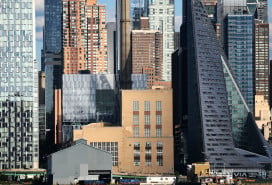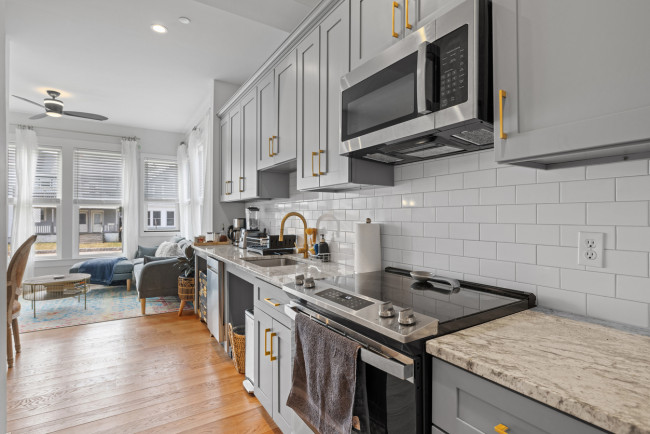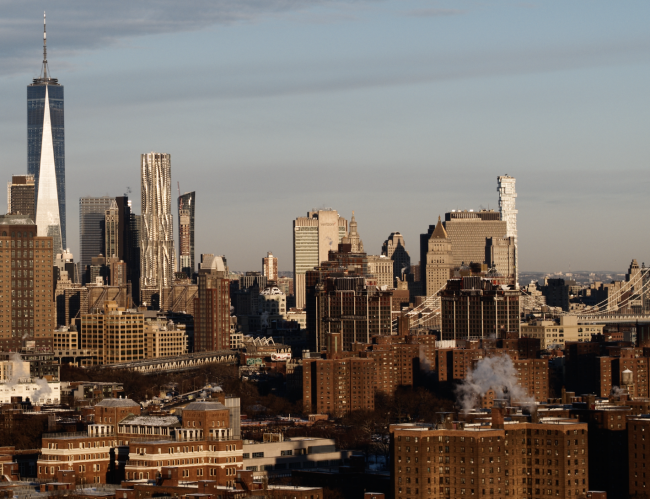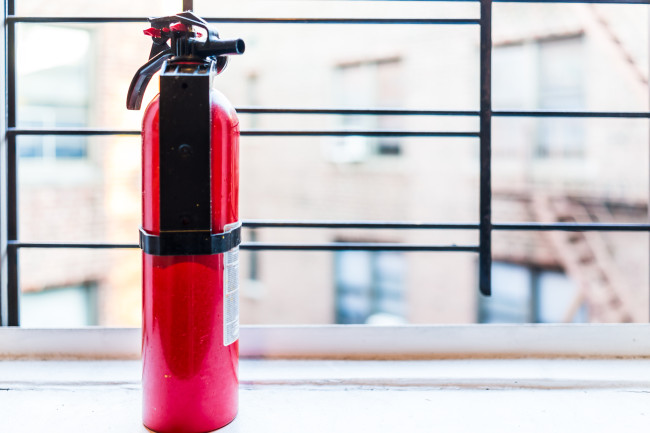A fire safety checklist for your NYC apartment building
- Space heaters, extension cords, and smoking are leading causes of apartment fires
- Your landlord must provide at least one smoke detector but you must maintain it
- Self-closing doors are required in all residential buildings with three or more units

Fire escapes are not for storage or drying clothes—they are your way out in case of a fire, so keep them clear.
iStock
It shouldn't take hearing about a devastating fire to prompt you to check safety measures in your own New York City apartment building, but that's often what spurs people to act.
On Sunday, three people were killed in an early morning fire in Queens in what the FDNY called a dangerously overcrowded house, partitioned to create separate living spaces. There were no fire detectors.
With so many tragic outcomes when there’s a serious fire—death, injury, displacement, and loss of personal possessions—it is important to take some preventative steps. Even small fires can have major consequences, because victims can be barred from returning home for extended periods and experience theft in their damaged properties.
So how can you make sure your apartment building is taking fire prevention seriously? The first step is knowing some of the main causes of residential fires—and making sure your landlord is following safety procedures.
[Editor's note: A previous version of the article ran in May 2024. We are presenting it again with updated information for April 2025.]
Space heaters, extension cords, and smoking are leading causes of fires, said Robert O'Brien, co-owner of New York Fire Consultants and a former FDNY firefighter, in an episode of The Brick Underground Podcast. You can listen to the episode for more information.
Read on for a checklist for fire safety measures in a New York apartment building.
Does your smoke detector work?
Your landlord is required to provide at least one smoke detector in your apartment but you must maintain it. You should periodically check yours to make sure the batteries are not dead. Some alarms have a blinking light or sound if the batteries are dead so don’t ignore this. And don’t be the person who disconnects your sensitive detector because it's triggered by your cooking. Your landlord is also required to send out a Fire and Emergency Preparedness Guide.
You can also request to have a smoke alarm installed in your apartment for free through a partnership between FDNY and the Red Cross. You will need to fill out a request form.
Regarding fire extinguishers: NYC fire code doesn’t require them except for where fuel-burning equipment is installed, like a hot water heater. Why? FDNY advice to leave the building during a fire, not try to extinguish it yourself.
What is the safety plan?
NYC fire code requires your landlord to issue a copy of the Fire and Emergency Preparedness Guide each year. A copy should also be posted in your apartment (usually on an apartment or closet door) and in the common areas. It details what you should do in the event of a fire, like call 911 and evacuate.
Your building might also include specific fire safety measures and protocols in your lease or house rules. Another tip: If there are children under six living in your apartment, you can receive free stove knob covers. You might also want to buy these if you have hyperactive cats who might accidentally turn on your gas stove (we're speaking from experience).
Are there self-closing doors?
Self-closing doors are required in all residential buildings with three or more apartments. If the doors function correctly, they work as a barrier and cut off oxygen to stop the spread of the fire. However if they aren’t maintained, they cause a serious problem, which is what happened at the Bronx fire.
How can you tell if your door closes the right way? O'Brien said when you push the door open, it should swing back and close on its own. You should hear a click and a latch, he said.
Is your fire escape safe to use?
Your fire escape isn’t a place for you to dry clothes or get fresh air. It’s actually your exit if there’s a fire and you can’t make it through the building—so it’s important to keep it clear.
Fire escapes are covered by Local Law 11, which requires your landlord to have it inspected every five years if you live in a building six stories or higher. If your fire escape is hanging off of the building or you don’t think it’s safe for other reasons, you should contact your landlord immediately.
Where is the closest exit?
If you live in a new building, there are no fire escapes as result of a 1968 building code change. Instead your building is required to have exit stairwells with alarms and sprinklers. So make sure you and everyone who lives in your apartment knows the easiest and quickest way to get out of the building. And as a reminder: You should not use an elevator during a fire.


























